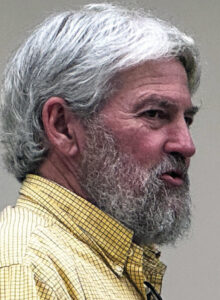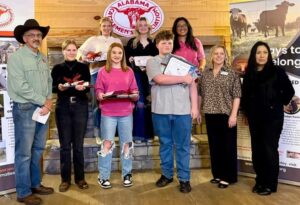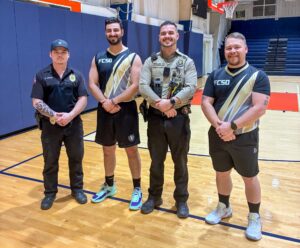The times and progress
By Staff
Sen. Roger Bedford
We are in difficult times throughout this great state and country.
From Washington and Montgomery to the dining room table, the talk is about how families will survive this recession.
One way I think that we can help pave a way to a brighter future is through our commitment and investment in research and development funding.
America is truly at a tipping point of being able to enjoy the fruits of scientific discoveries brought about by the completion of the Human Genome Project earlier this decade. I am certain that Alabama will play a major role in revitalizing our families and our nation's economy through the developments in this great endeavor.
Just as the information technology of the past several decades propelled us forward and produced a thriving economy, the overlapping fields of genetic and genomic research are poised to deliver the next wave of innovation and economic prosperity.
Right here in Alabama, we are intent on building the knowledge needed to provide solutions to some of our most pressing problems. Our great universities from Florence to Mobile are helping to lead the way. It's exciting to see bright and talented Alabamians helping us to focus on solutions to these challenges.
In Huntsville, the HudsonAlpha Institute for Biotechnology opened last year to translate scientific advances into tangible benefits for Alabama and beyond. Those benefits begin with groundbreaking discoveries in how genes work together and how they may be influenced.
Genomic studies underway at HudsonAlpha are already providing researchers with improved understanding of the causes and risk factors for human diseases.
Right now, HudsonAlpha scientists are working with other researchers around the country to study heart disease, autism and many different cancers, including the brain tumor glioblastoma.
They and others across Alabama have shown that cancer includes a number of sub-diseases that need to be diagnosed and treated differently.
In 1989 as I was preparing to do an autologous bone marrow transplant at M.D. Anderson cancer clinic in Houston, Texas, I first heard the theory that genetics might play a role in who and how we get cancer. As a cancer survivor, thanks to God's grace and great medical treatment, I understand first hand how important this research can be for all of us.
In the spring, I was fortunate to help host an event at the Clearview Cancer Institute in Madison County. This event was part of the Cancer Awareness Week, jointly sponsored by the cities of Huntsville and Madison, Madison County, HudsonAlpha, CCI, the American Cancer Society, Huntsville Hospital and Crestwood Medical Center.
At the event, leading physicians and scientists Dr. Marshall Schreeder and Ms. Amy Sullivan of CCI, and Drs. Richard Myers and Chris Gunter of HudsonAlpha taught us the latest information on our genetic code and cancer. We already know that each cancer is unique, and teams like theirs are working on improved diagnosis and more specific therapies for each person's illness.
Aside from the pressing human health issues, other studies help define viable alternatives to fossil fuels and investigate solutions to environmental concerns. Many of these discoveries are made in concert with our outstanding state research universities and with the collaboration of researchers across the country and the world.
But these discoveries are only part of what it takes to be truly meaningful. HudsonAlpha, located in the second largest research park in the nation, also collaborates with and supports entrepreneurs who drive products and services to market. Discoveries made by the research scientists about cancer, for example, need to be developed into tests and treatments in your doctor's office. Biotech companies are crucial to making this happen.
Those "Eureka!" moments in HudsonAlpha laboratories and in our great universities also spur educational outreach starting in pre-school and going beyond retirement age. This past school year, about 20,000 seventh-graders from public schools across Alabama used hands-on kits developed by HudsonAlpha to learn about DNA. In 2010, even with a tight state budget for the Alabama Math Science and Technology Initiative, thousands of students at the middle and high school level will use these and other kits to become excited about science education, connecting academic learning with real-world application.
The Educational Outreach team at HudsonAlpha has also created workforce development components to engage and motivate the next generation. These efforts provide students with the required skills to succeed in the global marketplace in research, healthcare, agriculture, defense and information technology.
Continued efforts by state leaders to attract and harness the brainpower to catalyze non-exportable jobs strengthen Alabama's economic base while supporting the nation's world leadership position.
Creating jobs, growing wealth, protecting the environment, delivering better education and promoting better human health are duties shared between our research universities, our non-profit institutes, our life sciences industry and our state government.
It's up to each of us — citizens, scientists and legislators — to support the growth and vitality of Alabama's life sciences initiatives.
When Sputnik launched more than 50 years ago, a shocked America launched a response by landing man on the moon.
Many of the far-reaching technological breakthroughs leading to that history-making success have roots here in Alabama. We must now resolve to again step up and blaze a new scientific trail by supporting the growing biotech economy in Alabama.
Roger Bedford is a state senator from Russellville, who represents much of northwest Alabama.








